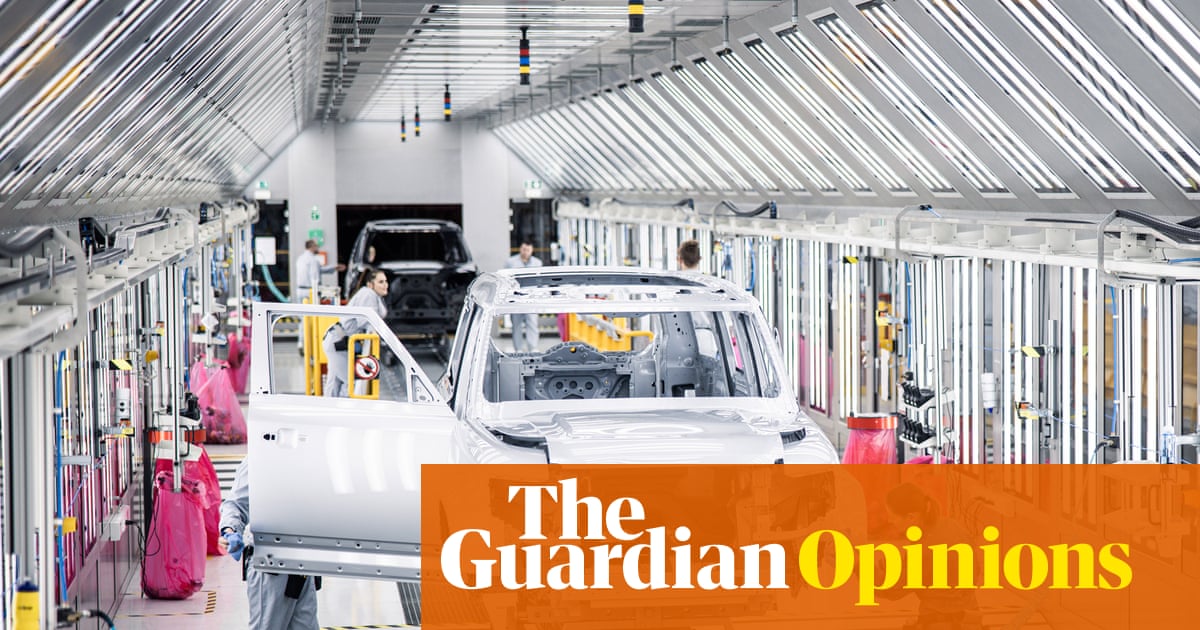Here are a few principles for the government to bear in mind as it contemplates intervening to support car component suppliers hit by the fallout from the cyber-attack on Jaguar Land Rover.
First, JLR is a large and rich company that should support its direct suppliers itself – indeed, it will often have a contractual obligation to do so. Second, any intervention should be aimed at firms that are more exposed because their relationship with JLR is indirect – the suppliers to the suppliers, as it were. Third, even in the latter case, there is a fair argument that ministers should try to strong-arm JLR into picking up the eventual bill. One aim, after all, is to ensure that JLR’s eventual return to production is as smooth as possible.
The financial context is important. JLR is not an ailing corporate pauper in danger of ending up in a ditch itself. It is the main subsidiary of India’s Tata Motors and last year made pre-tax profits of £2.5bn. Profits aren’t the same as ready cash for use in a crisis, but Tata Motors’ first-quarter trading statement, issued on 8 August, a few weeks before the cyber-attack, showed JLR with a cash balance of £3.3bn. When combined with an undrawn revolving credit facility of £1.7bn, total liquidity was put at £5bn.
By any stretch, that sum should be ample for JLR to support its direct suppliers, said to number about 700 companies. The largest will themselves have enough liquidity to wait until the crisis is over to make contractual claims to JLR for the interruption to their business. For those who need cash immediately, the onus is on JLR to find it, as the company recognises.
The cyber-attack will probably end up costing JLR billions of pounds, just as the Covid pandemic did, but that is partly why capital buffers have to be large in this industry. Sudden crises are not unknown. Nor does JLR lack financial motivation to support its direct supply chain. It needs its restart of production – pushed back to 1 October, and probably only gradual initially – to run without snags.
after newsletter promotion
The government’s focus, then, should be on the fallout among indirect supplies. The big danger is permanent damage to the component industry, which might show up first as interruption to production at other manufacturers who are served by the same base. The fragmented nature of the supply chain complicates matters. So does the just-in-time delivery model. So does the fact that the car industry across Europe is suffering from weak demand and overcapacity.
But there is still a reasonable case for targeted intervention by government as a means of lessening the fallout risks in the supply chain. There is enough evidence already of workers being laid off temporarily and the whole industry slowing up.
The idea, as reported by ITV, of the government buying parts from suppliers to sell on to JLR when production restarts is, therefore, intriguing. The design sounds elaborate: being a go-between in an already complex supply chain is not straightforward. On the plus side, though, the government would own some actual assets, workers would be working and JLR (one trusts) would be on the hook to buy the parts when they are needed. Such an arrangement may indeed be preferable to a blanket distribution of loans, which, as the Covid experience showed, don’t always come back.
But the government should also be clear with JLR that the company would be expected to assist a support exercise among the wider supply chain. The Treasury cannot be expected to underwrite the costs of cyber-attacks, which, unfortunately, have become a risk of doing business. JLR has the financial resources to help itself and pick up the full tab for supporting its direct suppliers. For assistance to the indirect supply base, there should also be an obligation to contribute.
